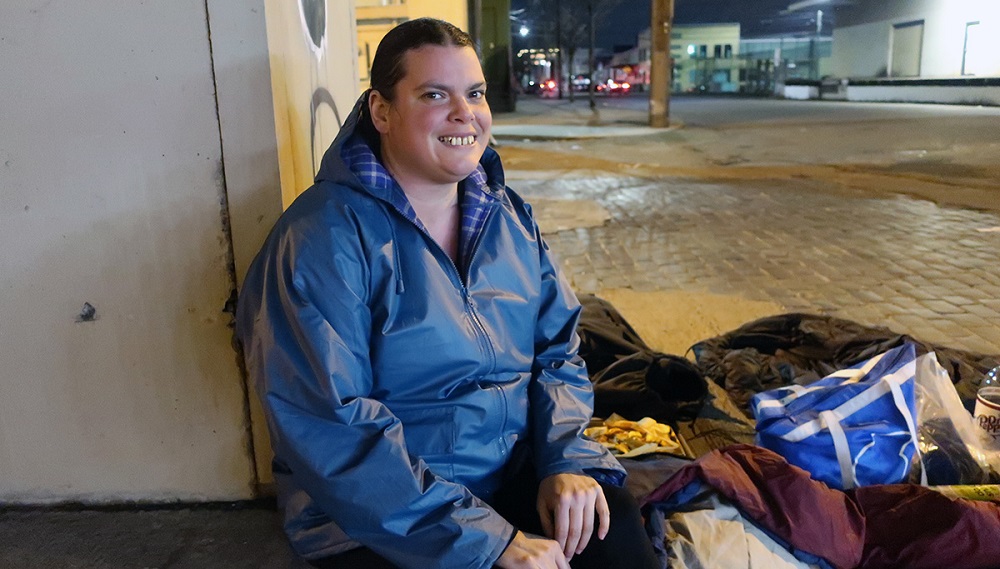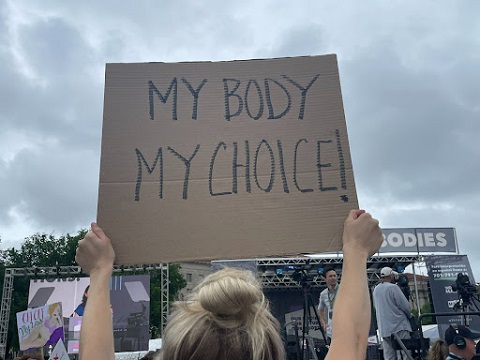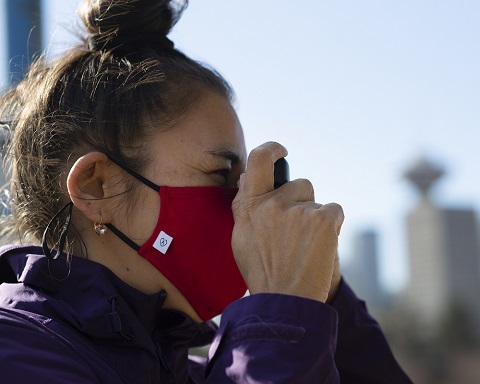By Helen Hill, Street Roots
In the 2017 Multnomah County [in Oregon] “Point In Time” homeless count, 1,355 adult women were identified as homeless, making up 36 per cent of the total homeless population. This was up more than 16 per cent from the 1,161 women counted in 2015, and more than double the 662 women counted in 2009.
What is it like for the growing numbers of women who are experiencing homelessness? We asked five of our vendors to talk about what women living on the streets experience.
Amy is currently living underneath the Morrison Bridge with her boyfriend Sean. Olivia (not her real name) is single and sleeps under the Burnside Bridge. Aileen has just moved to Dignity Village with her husband Charles. Jay is single, transgender, and in a temporary shelter. Barbra lives in a small tent community within the downtown core.
Amy
It’s a chilly evening in late November. A freight train shrieks past, the ear-splitting roar echoes through the tunnel of concrete piers under the east end of the Morrison Bridge. Bright lights high overhead stay on through the night, illuminating a changing community of people who shelter here. There is a roaming colony of rats. When it rains, a fast creek runs down ditches on either side of the rough-tiled pavement where sleeping bags are laid out for the night.
Amy has slept under the Morrison Bridge with her boyfriend and fellow Street Roots vendor Sean Sheffield for nearly three years. She transcends cultural assumptions of the homeless. She has never taken drugs or alcohol. She was recently appointed shift supervisor at her regular job at the Portland Airport Starbucks. She is open-hearted, cheerful and hardworking. She says she was worried at first about living under the bridge, “I thought I would freeze to death,” but now she is used to it and doesn’t feel the cold or the rain that sprays them “like spritz on a ship” when the wind blows. Every other week they look forward to taking her paycheck and staying in a motel for several nights.
Amy doesn’t feel safe without Sean nearby. “I think it’s harder for women on the street,” she said. ”Whenever Sean has to sell (Street Roots) after dark, I don’t like it. I’m always looking behind me and 360 degrees around me. We all look out for each other, we walk by and say ‘Hey, are you OK? Are you feeling threatened?’ I am a little suspicious when guys say that, but with a female, it feels good that we are looking out for each other.”
Portland police offer welcome protection, she said. On 20 November, there were two homicides in a homeless camp on the west side of the Morrison Bridge. “There were those two shootings, but the police came to check on us,” she said. “I thought that was really cool of them to do that. They woke us up and asked us how we were doing, they told us there were two homicides, and they did it twice during the night, they were sincerely concerned for our safety, they woke up the people behind us to make sure they were OK too.”

Olivia
Olivia is small in stature but strong, self-sufficient and confident. She’s been staying on her own under the Burnside Bridge. She is acutely aware of the sexism on the street and the challenging situations women face.
“The biggest misconception is that it’s easier for a woman on the street, because people think you can get stuff for free. And they think you can get into shelters easier, but it’s not true,” she said.
“Guys say you don’t have to be on the streets, someone will take you home. Takes a man to let you know: Hey, you can just be a prostitute, you don’t have to be homeless. Not every girl is a prostitute just because she’s homeless.
“I am constantly harassed every day. Guys don’t leave you alone. ‘Hey beautiful, hey girl.’ Do they think girls really like that? My first name isn’t ‘hey,’ my last name isn’t ‘girl.’
“Everyone knows me, it’s a small town, this homeless community. I make sure I keep a good reputation, I don’t do drugs, I won’t go where they are partying too much. But it’s the same bothering at night as you get in the daytime.
“Men always say it’s easier for women to get housing. Other vendors think I can sell more papers because I’m a girl. But it’s not fun being treated like a prostitute every day or being afraid at night, it’s definitely not easier.”
“Guys say you don’t have to be on the streets, someone will take you home. Takes a man to let you know: Hey, you can just be a prostitute, you don’t have to be homeless.”
Aileen
Aileen is a streetwise artist, seamstress and poet. She and her husband, Charles, have camped in a tent and lived in a camper. They recently returned to Dignity Village after the city repeatedly ticketed and threatened to tow their camper.
“I have had forced moves, gunshots in the middle of the night, flashing lights, but I’ve always had Charles with me,” she said. “It’s one of those things even if you don’t camp together as a camp family, you camp together in numbers for safety. You need to get to where you can trust people.
“I’ve seen women spread their sleeping bags out alone. As for the safety, honestly, I don’t think it’s any different male or female, because the older you are, you are just as vulnerable as any female.
“But just being a female, people will take advantage of you, if you look weak and vulnerable, someone will take advantage of you.
“You can cast that very strong don’t-fuck-with-me look. You can get training. My brother was military. He wanted to teach me self-defence, so he put me in a couple different holds. He didn’t expect me to grab his ears and say ‘meet the knee,’ but that was my instinct when he put me in the hold. He was thrilled with it, but he said, ‘if that’s your instinct, I don’t need to teach you.’
“I’m defending my life, I am the only one who has the right to say when my life ends. I use a power stance when I need to, you can bring yourself that strength.
“I’m always watching, there are so many things to watch.”
“I am more likely to have predators target me, or bullies target me, they view me as a weak woman, small, frail.”
Jay
Jay is a gifted artist. He identifies as both male and non-binary. He lives in a temporary shelter.
“As a person with a woman’s body, I think male-identified people have more options,” he said. “There are more shelter and housing options for single males than for single women or single transgender or non-binary people.
“I am more likely to have predators target me, or bullies target me, they view me as a weak woman, small, frail. I am more likely to have guys proposition me, like they say they will let me stay with them if I will be their girlfriend. I don’t think homeless men have to deal with that situation.
“You are between a rock and a hard place. You don’t want to live in a shelter, but you also don’t want to sell your body for housing either, which is what a lot of guys offer. You get to where you just don’t want to talk to any guys at all, it seems like just predators approaching.
“I think homeless men also get assaulted, but as someone in a woman’s body, I am more likely to end up dead or be sexually assaulted.”
Barbra
Barbra had a successful professional career as a market researcher. Her career ended when she became disabled in 2010 due to a brain lesion. She became homeless a few years later. She describes herself as “a miracle walking.”
Barbra is an effective activist, serving on committees at Sisters of The Road and with the Old Town Chinatown Neighborhood Association. She was recently chosen as an advisor to a team of OHSU doctors who are creating a syllabus to investigate and serve the homeless. She also volunteers for the Metro Trash Initiative, brainstorming strategies to help people experiencing homelessness dispose of trash and recycling. She lives with her boyfriend in a tent community of 12.
“You talk to women on the streets, they will tell you, ‘I was raped.’ ‘My babies were taken,’ and that’s the reality of it. You have to pick the best out of the worst. I don’t think anyone understands. I have a lot of respect for the women who sleep alone, I couldn’t do it.”
“I’ve always been with a man,” she said. “You have all these dangers, you have people who will kill you for your money, your backpack – even if they don’t know what’s in it. When you have a male partner, your chances of that are not as much. Maybe you have a dangerous boyfriend who will beat you and do bad things to you but they aren’t going to take your livelihood, they won’t take your wallet and your phone, so you make a decision; as long as I don’t do this, this won’t happen, as long as I don’t drink, this guy won’t beat me, so I’m safe through all these things. No one will beat me up or rape me or steal from me because I have someone there with me all the time.
“You talk to women on the streets, they will tell you, ‘I was raped.’ ‘My babies were taken,’ and that’s the reality of it. You have to pick the best out of the worst. I don’t think anyone understands. I have a lot of respect for the women who sleep alone, I couldn’t do it.”
Her advice to other women on the streets: “Trust your instinct. If you have fear, there is a reason it is there. Trust the gut, don’t trust your brain or heart. If your gut says don’t walk down that street, don’t trust that man, listen to it.”
“There are more and more of us coming out,” Barbra said. “We can’t stop it, I would like to think we would all band together and keep each other safe. I don’t want women out there alone, how vulnerable do we need to be?”




















